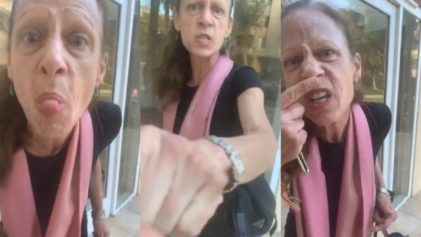*Mary (*not her real name) has a degree from one of the best colleges in the nation and is highly qualified in her field. She has applied to a major government agency in her state twenty times over the past five years. Although qualified, Mary has not been contacted or interviewed for a single position.
Why would a qualified applicant be overlooked so many times? Mary believes that her race is a major factor in her story. Sadly, she is likely correct, as potential Black employees and actual ones face many obstacles from getting work to the workplace itself.
The Hiring Process
Unfortunately, Mary’s struggle is familiar to most African-American job seekers. Title VII of the Civil Rights Act of 1964 prohibits outright racial discrimination in hiring practices. Although this law has been in place for more than 50 years, employers still find ways to discriminate against Black applicants. In fact, a recent study found that the rate of employment discrimination against African-Americans has not changed since 1989.
How does discrimination happen? One of the markers the researchers used was the name of the employee. It has been known for some time that for Black applicants, simply putting your name on your résumé can cause you to lose a job opportunity. In the well-known study “Are Emily and Greg More Employable than Lakeisha and Jamal?” the researchers sent résumés to various employers that were identical but for the name. Some had names associated with African-Americans; others did not. The applicants with “traditional” names had to send ten résumés to generate one callback. The applicants with “Black-sounding” names had to send fifteen résumés to get the same result. This sort of discrimination is difficult to prove or cure because it is difficult for an applicant to know if his name or some other factor caused him to lose the position. Moreover, few employers would openly state that racism was the reason they favored Dean over De’Andre or Amy over Aaliyah.
The discrimination continues even after the résumé is submitted. Dr. Devah Pager of Princeton University and Dr. Bruce Western of Harvard University studied bias in the interview process using “testers” — identical Black and white applicants. The researchers sent identical resumes to companies in New York and Milwaukee. Then they hired young Black and white men of similar ages, appearance, and personality to go on interviews. They trained the testers to behave and dress similarly at the interviews.
In Milwaukee, 34 percent of the white testers got callback interviews or job offers. Only 14 percent of the Black candidates were offered employment or invited to continue the interview process. The results from New York were nearly identical to those in Milwaukee (31 percent of whites hired or called back versus 15 percent of Black testers). According to the researchers, “The ultimate distribution of employment opportunities across equally qualified applicants reveals a process of decision-making very much shaped by race.” Even more interesting, contrary to allegations that Black people are quick to play the “race card,” most of the Black applicants told the researchers that nothing happened in the interview to make them feel uncomfortable or believe that the interviewer was racist.
Even after a Black applicant makes it past the interview, other steps in the hiring process may prevent her/him from being considered further. Many companies require an applicant to submit to a credit check. Although this might make sense for jobs that require that require a security clearance or positions where a person might handle large amounts of cash daily, nearly half of all employers require credit checks before employment. This requirement is particularly harmful to Black applicants, as Black people tend to have lower credit ratings than white people.
Moreover, many jobs require applicants to disclose their criminal background. The Equal Employment Opportunity Commission has warned employers that under certain circumstances requiring applicants to list an arrest or conviction can violate EEOC rules because of the racial disparities in the criminal justice system. Nevertheless, action has been taken against major companies like Pepsi and Macy’s for the continued use of criminal background checks.
Work Life
Despite these obstacles, when Black workers manage to get hired, discrimination occurs in the workplace as well, primarily with wages and promotions.
It is encouraging that over the past few years the median wage for Black workers has increased. However, when Black wages are compared to the wages of white workers there is little reason to celebrate. Wage discrimination is one cause of the continued and growing wealth gap disparity between whites and Blacks.
A recent report found that Black workers are the only group earning less now than they did in 2000. Moreover, another study found that while the average white worker earns $25.22 per hour, the average Black worker earns $18.49. This is a 27 percent wage gap. This 27 percent gap is a marked increase from 1979, when the gap was only 18 percent. So, the gap has increased 66 percent in the past four decades. Interestingly, over the same time, the amount of the wage gap that can be explained by non-racial factors (differences in occupations, age, education levels, etc.) has decreased and the amount of the gap that is “unexplained” (i.e., caused by racism) has grown. In 1979, eight percent of racial wage gap for Black men was “unexplained.” By 2016, the “unexplained” portion had nearly doubled to 13 points, indicating a rise in racial wage discrimination.
Of course, work is about more than wages. Workers also want to feel valued in the workplace. However, for Black workers, the wait for respect can be a long one.
*Lashawn(* not her real name) is an attorney in a major city. After working at her firm for 10 years, Lashawn sought a promotion to partner. Although she was denied, a white attorney with less experience was promoted. When Lashawn questioned the decision, she was told that she was not promoted because she had never expressed interest in becoming a partner, although this was not true. She said, “They never saw me as a person who wanted to move up or deserved it.” Lashawn says the experience shook her. “For the first time. I doubted myself, my skills and my self-worth. I was angry for so long, and that’s not who I am.”
*Deena (*not her real name) is an advertising executive in the Midwest. She said that at the beginning of her career she started with fifteen co-workers, three of whom were Black. The new hires were told that, per company policy, they would be eligible for promotion after eighteen months. All of the white employees were promoted after eighteen months. None of the Black employees were. The Black employees had to wait as long as three years to be promoted.
Deena also spoke about the intangibles of being Black in the workplace: people speaking to her white supervisor instead of coming directly to her, comments about her hair, remarks about her competence. She said the experience has stayed with her: “I know that situation was par for the course for all of the other Black people in the advertising industry and corporate America as a whole. No matter how well I do, how hard I work — it’s never enough. I’m never going to receive the same recognition as my white counterparts.”
Finally, Deena noted another pitfall of working in a client-based industry: the racism of clients. “A lot of clients don’t want Black people working on their business. They assume you are not as senior or as smart as white people. It’s definitely something I have to combat constantly.”
What Can be Done?
While racism in the workplace may not end, Black people and the larger community can take steps to enhance opportunities for Black applicants and to protect experienced workers. All Black job seekers and employees should familiarize themselves with federal and state anti-discrimination laws. Additionally, African-Americans can support initiatives such as “Ban the Box,” which prohibits employers from asking questions about criminal history on job applications.
Workplace support can be crucial. The women interviewed noted that at times they felt that there was no one in the workplace to listen to their concerns. Lashawn indicated that at one point she confided in her sole Black superior, only to be betrayed by her later. But she has a suggestion: “The legal profession needs to mentor lawyers of color and help them move along. There are very few Blacks at the top, and they need to put more at the top to keep more Blacks in the legal profession.”
All of the women interviewed for this story are doing well at this point. Mary works in a position in her field. Although she “loves” her work, she says she will continue to apply to the agency that rejected her. She says, “I really believe I can make a difference in that organization.
Although still at her firm, Lashawn is seeking new opportunities. “I am feeling more positive and happy, and I know something is out there for me. I see the light at the end of the tunnel. I know I will move on to bigger and better things. I look forward to that time. I’m not angry anymore, though I know I was right to feel I how felt. Now, I focus on my new job. Something better is waiting for me.”
Deena switched firms and has been promoted. Although she acknowledges her struggle, she knows it did not define her or her abilities. “Early in my career, the racism did make me question if I was smart and knowledgeable. Now that I am more seasoned in my career, I know my worth and what I bring to the table.”


